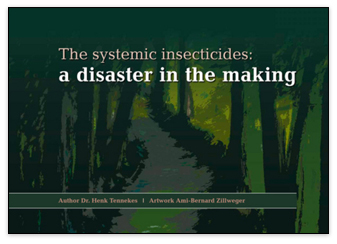Entomologists from Krefeld, Germany performing an inventory of insects have made an alarming discovery: since 1989 the amount of insects in two places in the nature reserve Orbroicher Bruch have fallen by more than three-quarters. The researchers have performed the measurements in exactly the same way as performed in 1989; in the same place, according to the same method and by the same people (reports in German and English attached). "So the data can be reliably compared", the entomologists emphasize. Two Malaise insect traps were placed in a pasture about 50 meters from each other over a period of many months to catch and weigh insects. Whereas in 1989 1.4 kg of insects were captured in this way, now less than 300 grams were recovered. According to the entomologists, this dramatic decline has serious consequences for the ecosystem: all insect-eating animals are threatened with extinction and eco-system services, including pollination, decomposition processes or soil fertility, will come under serious threat. The data from Krefeld are consistent with the Henk Tennekes thesis of 2010 that the widespread use of neonicotinoid insecticides in agriculture will wipe out insects. Tennekes pointed out in his book that two-thirds of ground beetles had disappeared in less than two decades from the Dutch heathland reserve Dwingelderveld.
Source: RP Online, 30 December 2015
http://www.rp-online.de/nrw/staedte/krefeld/unruhe-ueber-dramatische-in…

- Log in to post comments

Krefeld data consistent with Dwingelderveld data on beetles
The Dwingelderveld National Park, located in the province of Drenthe in the north-eastern part of the Netherlands, is a heath and woodland reserve of 3,700 hectares, with 1500 ha of wet heath land, which makes it the largest wet heath land in western Europe. Sjouke van Essen surveyed the ground beetles (Coleoptera : Carabidae ) on 38 locations in the Dwingelderveld reserve in 1991 and 2008, in exactly the same manner, and observed a massive decline in the number of caught ground beetles, from 45,000 (94 species) in 1991 to 15,000 (79 species) in 2008.
Source: H Tennekes (2010) The Systemic Insecticides: A Disaster in the Making.